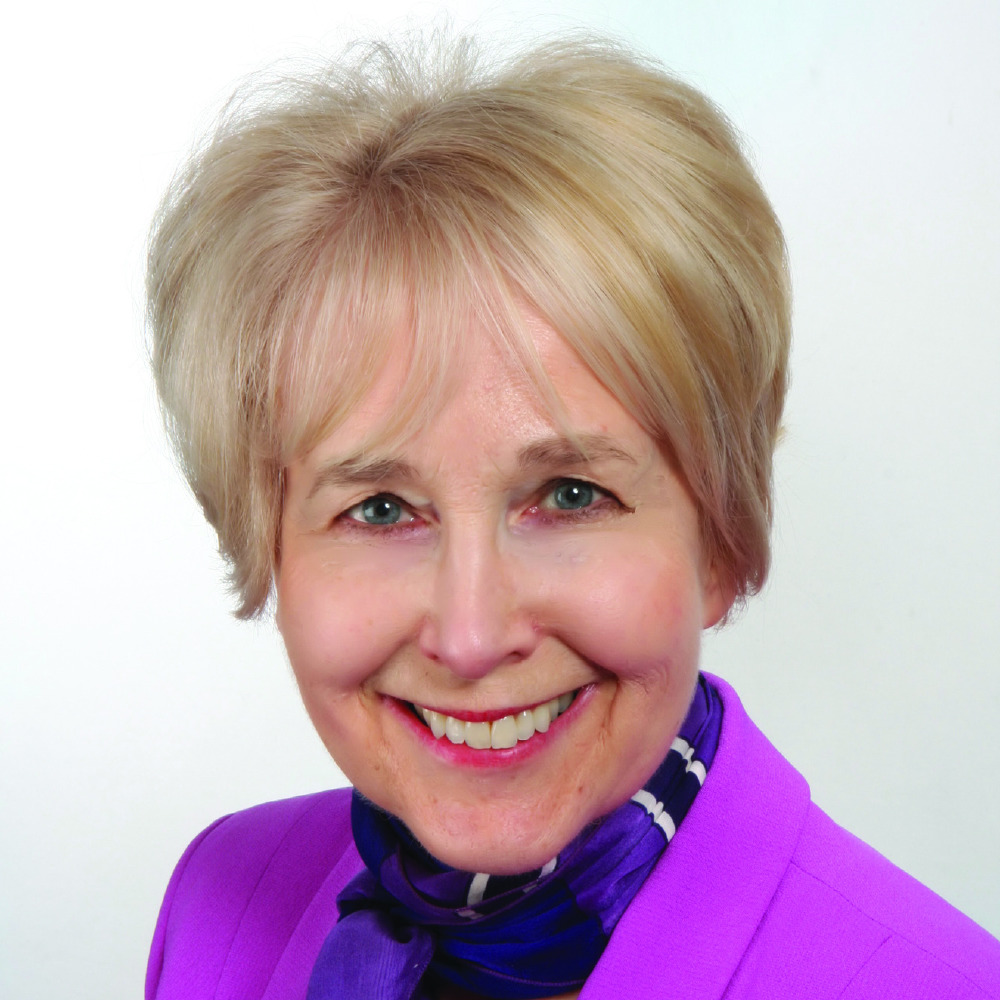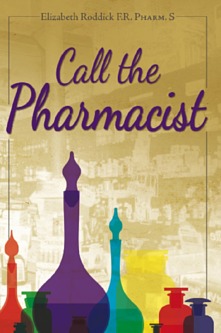
Elizabeth Roddick

Call the Pharmacist is about my life as a pharmacist in the community over 30 years, interacting with patients, doctors and speaking about health issues in a range of venues.
When did you first know that you wanted to become a pharmacist?
I first realised that I wanted to be a pharmacist when I was at school. My father owned an old fashioned 'chemist' shop and quoting from the book: 'But it was the lure of that special smell, a mixture of perfume and surgical spirit along with the rows of brightly coloured bottles with liquids and powders that fascinated me growing up. When these ingredients were miraculously turned into medicinal compounds, the fascination with chemistry and science grew.'
Please tell us about the professional background required to get where you are today?
Pharmacists attend 4 years at university. I gained a B.Sc. (Hons) degree in pharmacy from Strathclyde in 1972 and after a year as a pre-registration student in hospital I became a relief manager travelling round many pharmacies. I realised early on that what I particularly enjoyed was getting to know and help these patients and so when my father announced his retirement, I asked if I could buy his business and so I became a pharmacy owner in 1982. The book then tells the tale of how things were not that straightforward after that but all through my professional career I have tried new things which resulted in a few awards along the way.
What made you want to write your experiences down for others to enjoy and learn from?
I've always felt that the public don't realise what we do professionally and I wanted to portray life in a community pharmacy and raise the profile of our work.
How can people who have no background in pharmacy enjoy this book?
You know in Amazon when you buy a book and they e-mail you the next day with 'people who bought 'x' also bought 'y'. Well I'm hoping because it's a similar read-'People who bought 'Call the Midwife' also bought 'Call the Pharmacist' Indeed I think it would work well as a series on television. In other words it is written as collection of stories easily read by members of the public.
How has the profession changed since you first started out?
The main changes in pharmacy relate to the growth of the complexity of medicines. The clinical side of our work has grown and there is more delegation of dispensing work (putting tablets in bottles) to trained pharmacy staff. I myself am an independent prescriber so e.g. patients who require prescription only malaria tablets do not need to visit their doctor' practice. The computerisation of prescriptions has changed enormously. In Scotland we have electronic scanning of prescriptions and six monthly prescriptions issued by doctors managed by ourselves with electronic checks.
What are your fondest memories of work?
Memories that stick out are first of all getting involved with the community. Our shops were being threatened by the imposition of bus lanes so I galvanised the local shopkeepers into a 'Save the Shops' campaign. (At one point, for publicity, the committee walked up Clarkston Road in front of an empty coffin shouting 'down with the bus lanes.') Also, dealing with my methadone patients - some successes and tragedies, getting to know the ups and downs of their lives on a daily basis. 'Eight and a half months later Sharon rushed into the pharmacy and cried out 'My water's broke!' That was when the panic started.' And dealing with someone with cancer. The journey, the support, the help, that is so satisfying to give to all the family. For me it's been a privilege.
Why is a holistic approach important for you?
The holistic side of my work is important because to help someone find a solution to a health problem involves treating the whole person. If I can give you an example, we know that about 80% of visits to doctors are for symptoms relating to stress. If someone comes into me with a health issue then I find out what is happening in their life because although I can give them something to help the symptom. I want them to look at what is causing the problem. It could be a sleep problem, work related, looking after children, elderly parents or lack of nutrition to give a few examples. I can't solve many of these issues but allowing someone to realise what could be causing the problem can bring enormous benefit.
You partake in a lot of public speaking so tell us about a typical day when you do this.
My radio work involves doing a 'Health and Wellbeing' slot at Insight Radio every fortnight. I pick up on themes appearing in the news and look behind the headlines in order to bring some perspective to the stories. I was lucky enough to be on BBC Scotland Radio last week talking about my book on the Fred MacAulay show. I thoroughly enjoy doing talks on quality of life as we age. Improving mind and memory and getting balance back in our lives to community groups. I also do talks on vitamin D and am working with a researcher doing vitamin D testing and advising on suitable doses.
What is next for you?
The future is my own radio show? Maybe just giving weekly pieces of advice in social media channels-need to learn how to do that first!
Elizabeth Roddick F.R.PharmS, is an NHS-award winning Pharmacist and is the author of ‘Call the Pharmacist’ (£10.99 Panoma Press) which is available from Amazon now!

